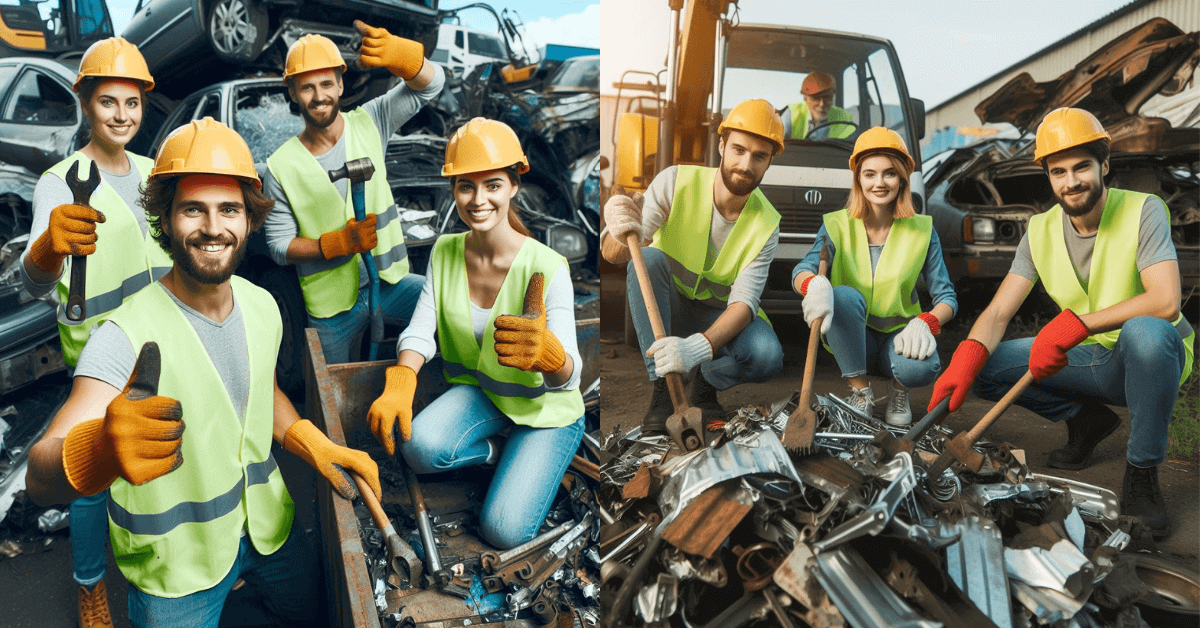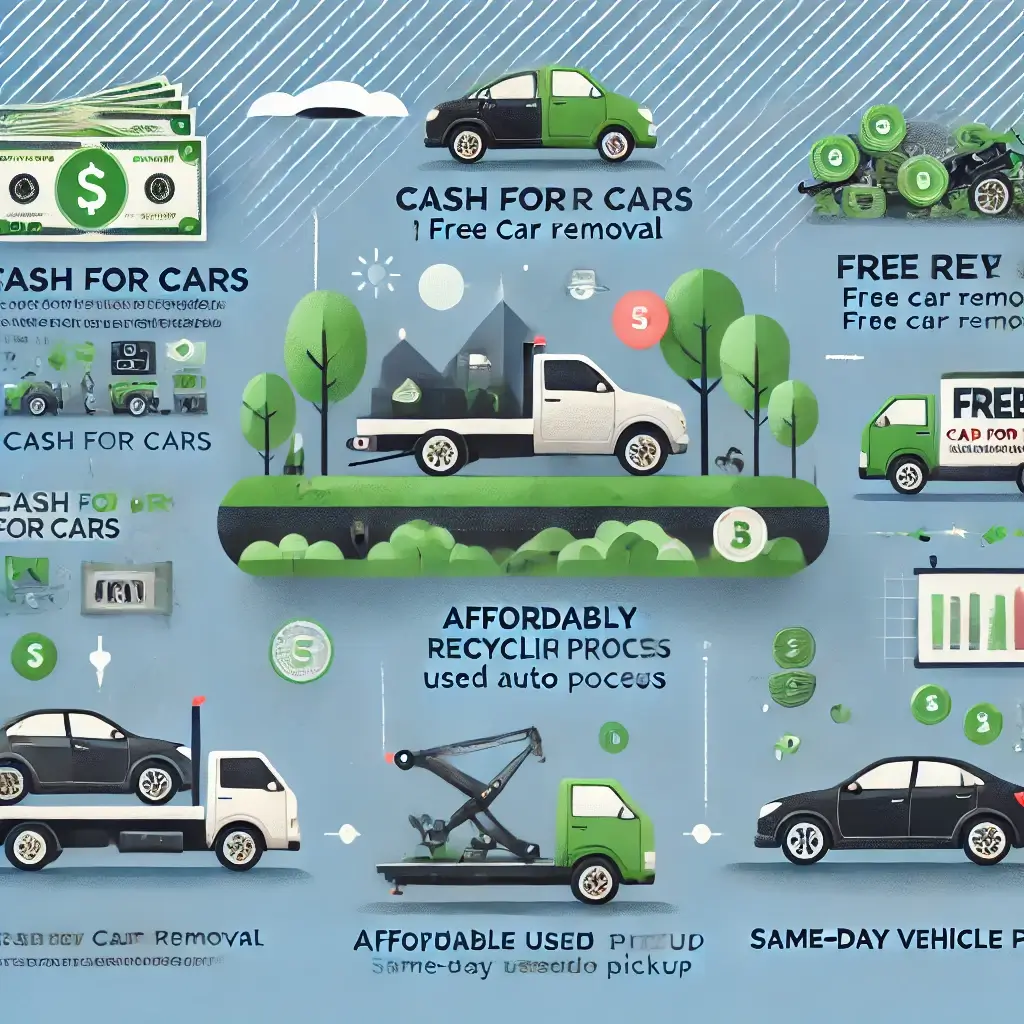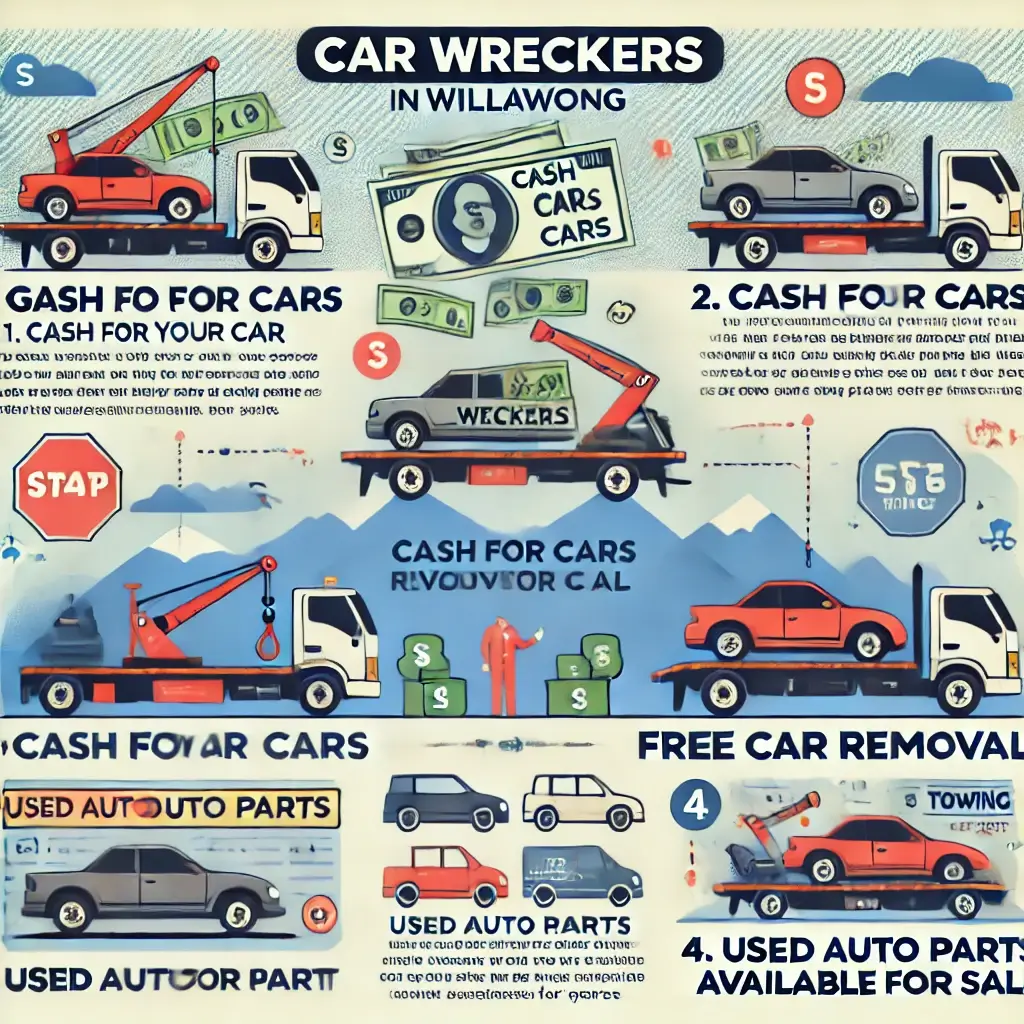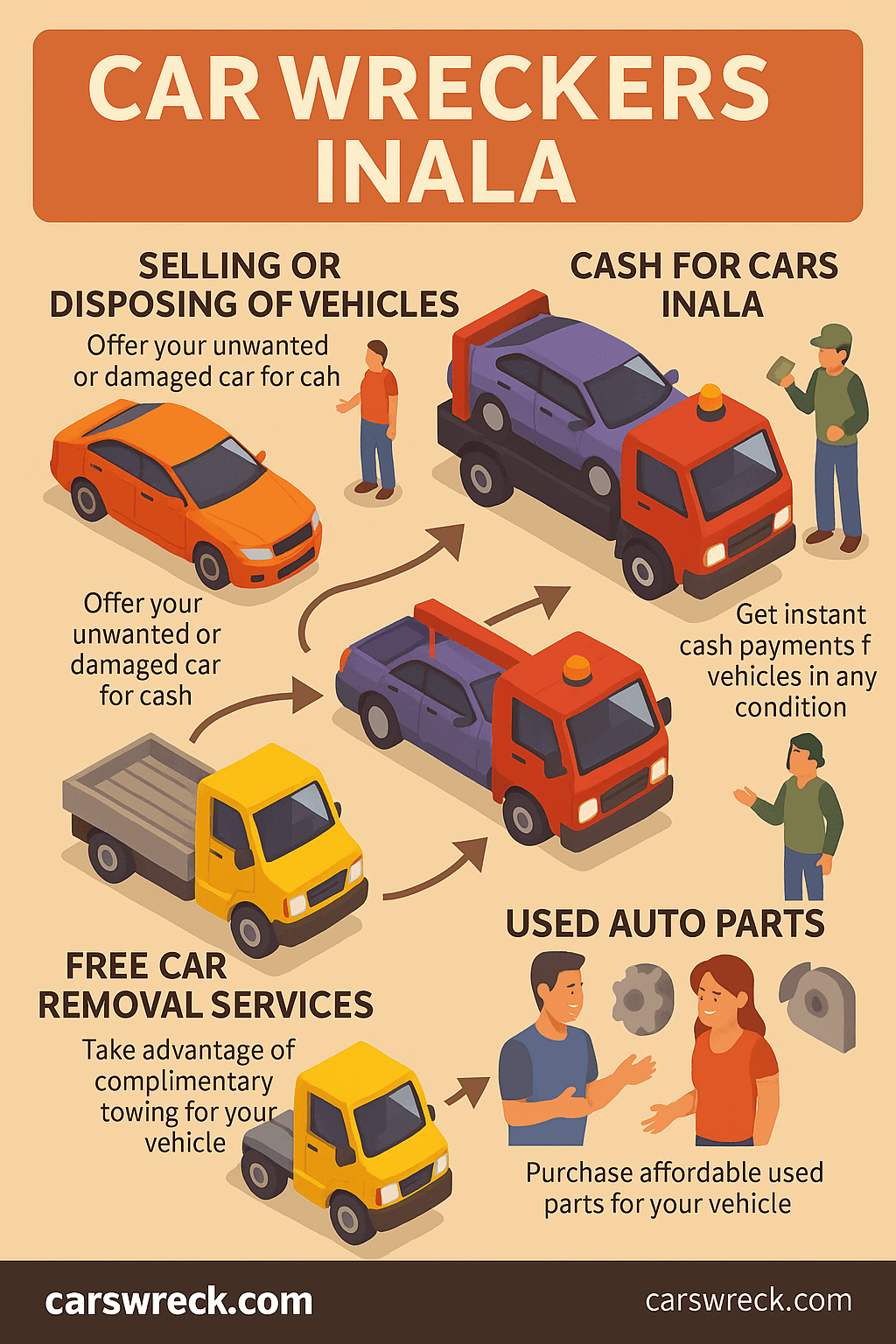Wreckers for Scrap Cars: Turning Old Metal Into Cash

Are you tired of looking at that old, broken-down car in your driveway? It’s time to consider using wreckers for scrap cars. Wreckers offer a convenient and environmentally friendly solution for disposing unwanted vehicles while providing financial benefits. In this article, we’ll explore what wreckers are, how they work, the benefits they offer, and how to find reliable wreckers for your scrap car.
How Do Wreckers for Scrap Cars Work?
Collection of Scrap Cars
Wreckers typically acquire scrap cars through various channels, including auctions, private sales, insurance companies, and direct purchases from vehicle owners. Once a vehicle is acquired, it is transported to the wrecker’s facility for processing.
Dismantling Process
At the wrecker’s facility, trained technicians carefully dismantle the vehicle, removing all usable parts and components. This Process involves draining fluids, such as oil and coolant, and removing valuable parts like engines, transmissions, and electronic components.
Salvaging Usable Parts
Usable parts salvaged from scrap cars are thoroughly inspected, cleaned, and cataloged for resale. These parts are often sold to auto repair shops, mechanics, or individuals looking for affordable replacements for their vehicles.
Recycling Materials
After salvaging usable parts, wreckers focus on recycling the remaining materials, such as metal, glass, plastic, and rubber. These materials are sorted, processed, and sent to recycling facilities, where they are transformed into raw materials for manufacturing new products.
The Environmental Impact of Using Wreckers for Scrap Cars
Reduction of Landfill Waste
By diverting end-of-life vehicles from landfills, wreckers help reduce the environmental burden of automotive waste. Recycling materials from scrap cars reduces the need for raw materials extraction and minimizes the space required for landfill disposal.
Energy Conservation
Recycling metals from scrap cars consumes significantly less energy than producing virgin metals from ore. This energy-saving Process helps conserve natural resources and reduces greenhouse gas emissions associated with metal production.
Raw Material Preservation
By lowering the need for new raw materials, recycling materials from old cars contributes to preserving finite natural resources. This contributes to sustainable resource management and helps protect ecosystems affected by resource extraction.
Benefits of Using Wreckers for Scrap Cars
Financial Benefits for Vehicle Owners
For vehicle owners looking to dispose of old or damaged cars, using wreckers can be cost-effective. Wreckers may offer cash payments for scrap cars, giving owners a financial incentive to recycle their vehicles responsibly.
Convenience and Efficiency
Utilizing the services of wreckers streamlines the vehicle disposal process, saving owners time and effort. Instead of dealing with the hassle of selling or scrapping a car independently, owners can contact a wrecker and arrange for pickup and removal of their vehicle.
Contribution to Sustainability Efforts
Wreckers recycle automobiles, so owners may feel good about reducing their environmental impact and supporting sustainability initiatives. Recycling end-of-life vehicles conserves resources, reduces pollution, and helps create a more sustainable future.
Factors to Consider When Choosing a Wrecker for Scrap Cars
Reputation and Reliability
It’s crucial to pick a wrecker from a trustworthy company with a history of providing top-notch service. Reading reviews, checking credentials, and asking for recommendations can help ensure a positive experience.
Environmental Practices
Choose wreckers who emphasize eco-friendly procedures, like compliance w, with recycling ng regulations and safe disposal of dangerous products. Choosing an eco-conscious wrecker ensures your vehicle is recycled responsibly, minimizing environmental harm.
Services Offered
Examine the variety of services that various wreckers provide, like free car pickup, affordable prices, and paperwork support. Selecting a wrecker that offers comprehensive services can simplify vehicle disposal and enhance owners’ convenience.
FAQs
Wreckers typically accept many vehicles, including cars, trucks, vans, SUVs, and motorcycles, regardless of make, model, or condition.
Yes, wreckers accept vehicles in all conditions, whether drivable or not. Even if your car is still operational, you can sell it to a wrecker for recycling.
Your car’s make, model, condition, and the current market value for scrap materials all affect how much money you can get.
Many wreckers are subject to regulations and guidelines set forth by environmental agencies to ensure proper handling and disposal of hazardous materials and compliance with recycling standards.
Usable parts salvaged from scrap cars are resold for reuse, while materials such as metal, glass, plastic, and rubber are recycled and transformed into raw materials for manufacturing new products.
Conclusion
Wreckers for scrap cars play a vital role in transforming old vehicles into sustainable solutions. By efficiently dismantling and recycling end-of-life vehicles, wreckers reduce environmental impact, provide financial benefits to vehicle owners, and contribute to sustainability efforts. Recycling a car through a wrecker offers practical benefits and helps create a cleaner, greener future for generations to come.





